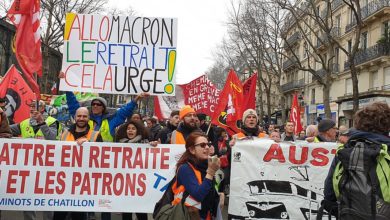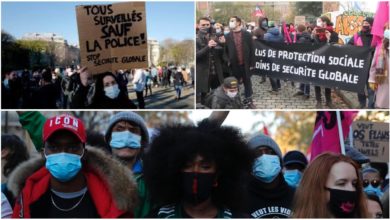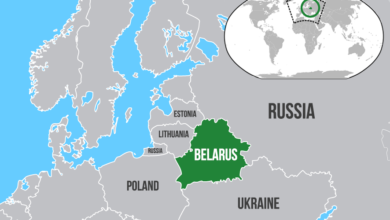Oct. 27 marked the one-year anniversary of the death of two teenagers, Zyed Benna and Bouna Traore, in the French suburb of Clichy-sous-Bois. The teenagers were electrocuted at an electrical substation while fleeing the police.
Their deaths sparked a massive rebellion that lasted 21 days. The rebellion stretched from the suburbs of Paris
 |
The rebellion, carried out by the sons and daughters of immigrants from Africa and the Middle East, was a justified explosion of violence from the most oppressed sectors of
French society. Behind the rebellion was France’s colonial legacy and decades of immigrants suffering racism and indignity.Just days before the teenager’s died, French Interior Minister Nicolas Sarkozy had announced a “war without mercy” on the immigrant communities that primarily live in suburbs of Paris. In 2002, Sarkozy militarized the police in these suburbs, replacing beat cops with heavily armed “anti-crime brigades.” This racist move was directed primarily at people of African and Arab descent.
More cops, repression
France’s unemployment rate is roughly 10 percent nationally. In the predominantly immigrant suburbs, the rate is much higher, reaching 40 percent. Workers there are subject to difficult living conditions, poverty and intense racism from the police and white population.
Racism in France is so deep-seated that a job applicant with a North African-sounding name is five times less likely of receiving an interview than one with a traditionally “French” surname.
One year after the rebellion, the social conditions that fueled it remain unchanged.
The French state has increased it repressive apparatus—planning the construction of a large police station in Clichy-sous-Bois. It has been framed as an attempt to address the situation but, in reality, it is preparation for further repression.
Roughtly 7,000 police are on duty in the suburbs on an average night. Before the anniversary, Paris deployed 4,000 additional police to bolster the militarized force. Police also attacked the Montfermeil housing project in the area, terrorizing the community.
A report prepared by the intelligence agency of the Interior Ministry indicated that the social conditions that caused the rebellion last year are unchanged.
The report also noted that any coming violence could be less spontaneous but “more structured, and targeting
 |
The theme of “necessary defense” is common when the ruling class attempts to legitimize increased repression against working-class and oppressed communities. In reality, the police are the aggressors. The youth who defend themselves are not armed and funded by the state. They heroically fight the police with rocks and sticks while facing tear gas and well-armed police officers.
More than 500 people marched through the streets of Clichy-sous-Bois on Oct. 27. Traore and Benna’s pictures were posted throughout the housing projects of the city with the caption, “Zyed and Bouna, I’m thinking of you.” Residents highlighted the recurring problems that led to the two boys’ deaths.
Sixteen-year-old Benj said “Nothing has changed. … The cops were responsible for the riots. They only come here to give us a hard time. We live in the same filthy environment. We want facilities—there are not even play areas for kids here.”
The families of African and Arab immigrants, who have come from former French colonies, live in the suburbs described by Benj. Joblessness and poverty in their home countries—caused by decades of French exploitation and underdevelopment—force thousands of immigrants to travel imperialist France in search of work.
Immigration to imperialist countries is occurring throughout the world. In Europe, as in the United States, the capitalists are using the influx of immigrants as a political tool against working-class people. They want to keep immigrants in low-wage jobs and to keep the working class divided.
Last year’s rebellion in France shows that immigrant workers will fight back against the terrible racism and oppression meted out by the capitalists. Such militant struggle against the racist bosses is not only an outgrowth of the system, it is necessary to hasten its downfall.






